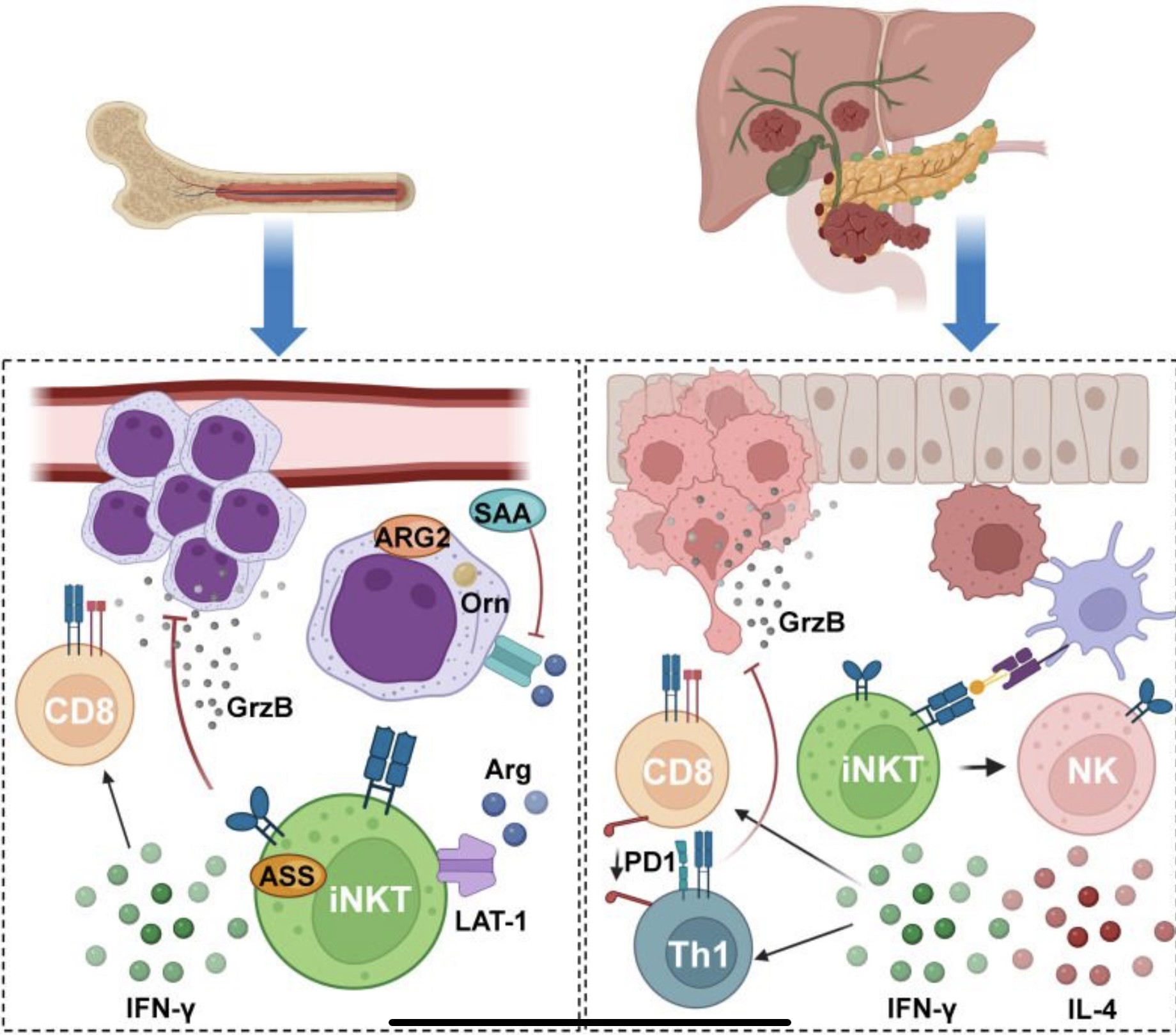Easy IMMUNO-ATMPs shared on LinkedIn:
“Invariant natural killer T cells response to acute myeloid leukemia and pancreatic cancer liver metastasis.
It has been described that Invariant natural killer T cells can play a pivotal role in tumor immunity, either during tumor formation and/or progression. Furthermore, it is noteworthy that these cells have been assessed in various types of cancer.
In recent investigations using E0771 breast cancer mouse models, researchers have noted that Invariant natural killer T cells, unlike the Natural Killer cells also studied, exhibit heightened activation (hyperactivation) in late-stage cancer, displaying potent effector functions within the breast tumor microenvironment.
This was evidenced by the downregulation of exhaustion and inhibitory molecules (CTLA-4, TIM3, PD1) and the upregulation of activating receptors, effector molecules, and cytokines (Granzyme B, NKG2D, NKG2A, NKp46, IFN-y, IL-4, IL-17, IL-10). These findings suggest that iNKT cells could be promising candidates for tumor immunotherapy.
In the image: Invariant natural killer T cells actively participate in tumor immunosurveillance in acute myeloid leukemia (AML), within the arginine-depleted environment induced by suppressive myeloblast through arginase 2 (ARG2), and acute-phase protein serum amyloid A (SAA).
Invariant natural killer T cells adapt to this environment via the upregulation of the large neutral amino acid transporter (LAT-1) and argininosuccinate synthase 1 (ASS), enabling these cells to induce a cytotoxic response. Invariant natural killer T cells have also been reported to have a role in preventing metastasis progression, as described in a mouse pancreatic cancer liver metastasis (PCLM) model.
iNKT cell activation with α-GalCer using APCs resulted in the suppression of PCLM progression due to increased immune cell infiltration, enhanced cytotoxic activity of iNKT and NK cells, and the promotion of a cytotoxic profile in CD4+ and CD8+ T cells.”
